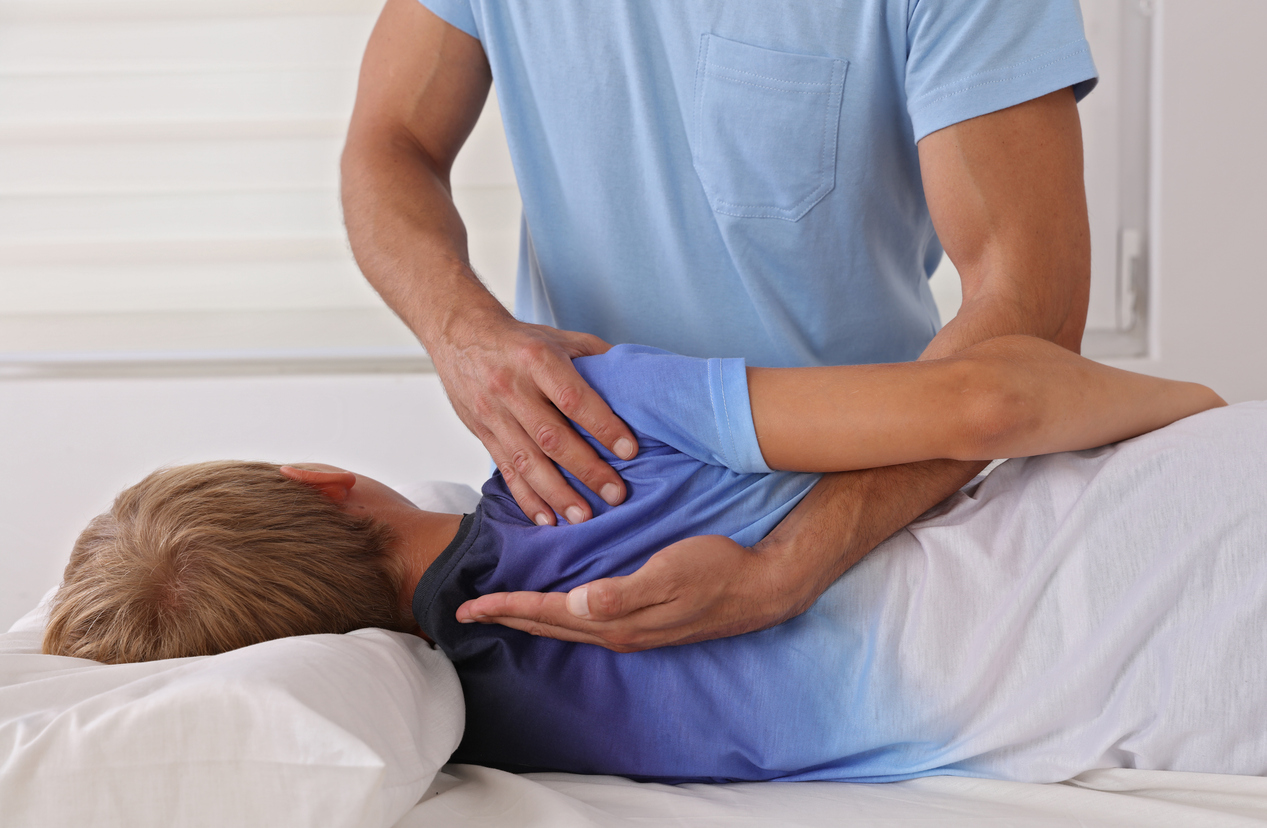As the school year is underway and daily routines fall into place, now is the perfect moment to address an often-overlooked concern: back pain in children. With students already immersed in their classes, activities, and homework, the demands on their growing bodies have increased. Heavy backpacks, long hours sitting in classrooms, and changes in physical activity levels can all contribute to back pain. It is crucial to prevent back pain in children early on to ensure a healthy and successful school year. At Carolina Rehab and Physical Medicine Center, we help you protect your child’s spine and overall well-being as they develop through their growing years.
The Back-to-School Connection: Why Now Matters to Prevent Back Pain in Children

The start of the school year marks a significant shift in your child’s daily routine. During the summer, children typically enjoy more physical activity, more time outdoors, and less structured sitting time. Once school starts, they may spend long hours sitting at desks or computers, carrying heavy backpacks, and participating in more sedentary activities. These changes can profoundly impact their spinal health and overall well-being.
Children commonly experience back pain due to new school routines. By addressing potential risks early in the school year, you can help your child avoid discomfort and develop habits that will protect their spine throughout their school years and beyond.
Understanding the Risks: What Causes Back Pain in Kids?

Several factors can contribute to back pain in children, particularly during the school year:
Heavy Backpacks
One of the most significant contributors to back pain in school-age children is the weight of their backpacks. Research shows that children who carry backpacks exceeding 10% to 15% of their body weight are more likely to experience back pain and other musculoskeletal issues (LVHN) (BMJ Archives). The weight of a heavy backpack can cause a child to lean forward, disrupting their natural posture and placing undue stress on the spine and muscles.
Poor Posture
Sitting for extended periods, especially with poor posture, can lead to back pain. In the classroom, children may hunch over their desks or slouch in their chairs, which can strain their back muscles and lead to discomfort over time. At home, poor posture while doing homework or using electronic devices can further exacerbate the problem.
Lack of Physical Activity
Physical activity is essential for maintaining strong muscles and a healthy spine. However, the demands of school can lead to a more sedentary lifestyle. Children spend long hours sitting in class or doing homework. A lack of regular exercise can weaken the muscles that support the spine, making back pain more likely.
Injuries and Strains
Children are naturally active and, as a result, are prone to injuries, whether from sports, playground activities, or roughhousing with friends. Even minor injuries can lead to back pain if not properly addressed.
Growth Spurts
Rapid growth during adolescence can sometimes lead to back pain. As the spine and muscles adjust to the body’s new size, discomfort may arise. While growth-related back pain is typically temporary, it is essential to ensure that other factors, like posture and backpack weight, aren’t contributing to the issue.
Preventing Back Pain in Children: Practical Tips for Parents

Taking proactive steps to prevent back pain can significantly affect your child’s comfort and overall health as they return to school. Here are some practical tips:
Monitor Backpack Weight
Ensure your child’s backpack is light enough. A good rule of thumb is to ensure it weighs no more than 10% to 15% of your child’s body weight, and ideally less than that. Please encourage your child to carry only the essentials and use lockers or cubbies at school to lighten their load throughout the day.
Encourage Good Posture
Teach your child the importance of good posture, both in and out of the classroom. Remind them to sit with their back straight, shoulders back, and feet flat on the floor. Frequent breaks to stand and stretch can also help alleviate the strain from prolonged sitting.
Promote Physical Activity
Make sure your child stays active, even during the school year. Encourage participation in sports, physical education classes, or active play after school. Regular exercise helps strengthen the muscles that support the spine and can reduce the risk of back pain.
Watch for Signs of Discomfort
Children may not always tell you when they’re in pain, so it’s essential to watch for signs that something might be wrong. If your child complains of back pain, has trouble standing up straight, or seems reluctant to participate in physical activities, it’s time to investigate further.
When Your Child Needs a Chiropractor

If your child experiences any back pain symptoms despite you taking precautions, it is crucial to seek professional help from Dr. Strickland. Early intervention can prevent minor discomfort from becoming a chronic issue that affects their quality of life. Having your child seen by a chiropractor early in their life, even before any problems develop, is essential for ensuring their spine is growing correctly and setting the foundation for their long-term health. At Carolina Rehab and Physical Medicine Center, we specialize in diagnosing and treating back pain in children. Please read our blog, Chiropractic Care for Children to learn more.
Set the Foundation for a Healthy School Year: Prevent Back Pain in Your Child
Back-to-school season is an exciting time, but it is also a critical period for preventing back pain in children. By being proactive and addressing the potential causes of back pain early, you can help your child establish healthy habits that will protect their spine and overall health throughout the school year. Don’t hesitate to contact Carolina Rehab and Physical Medicine Center if you have any concerns about your child’s back health—we’re here to support your child’s well-being every step of the way.
Craig Strickland, DC
Carolina Rehab and Physical Medicine Center
1539 Highway 17, Little River, SC 29566
843-249-9787

